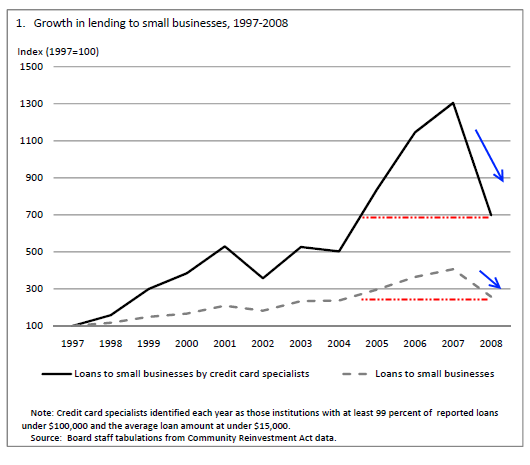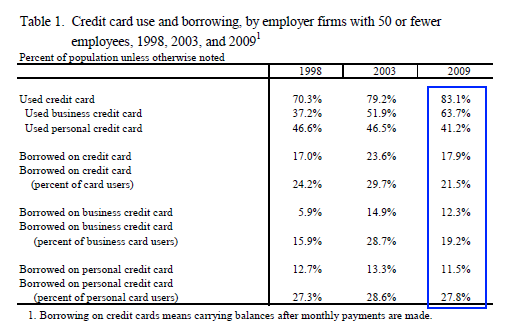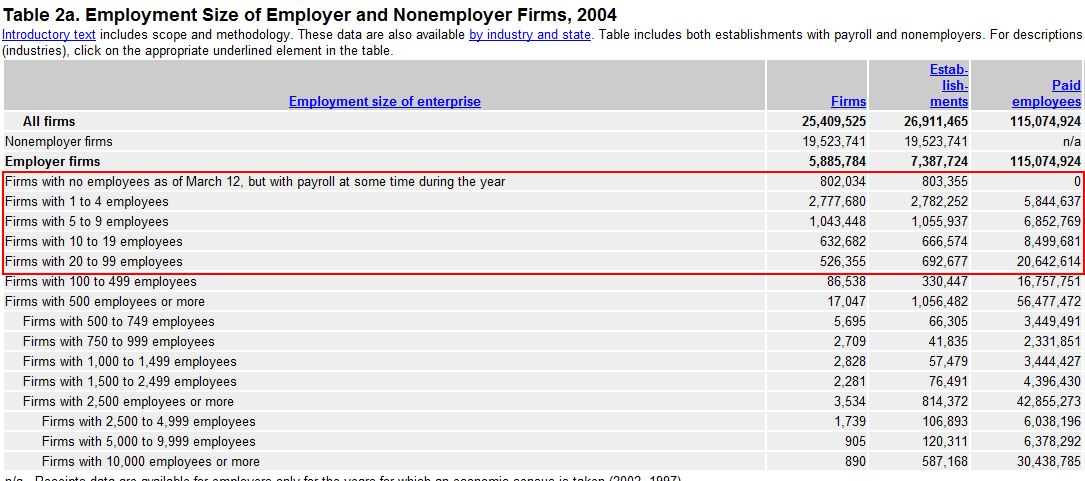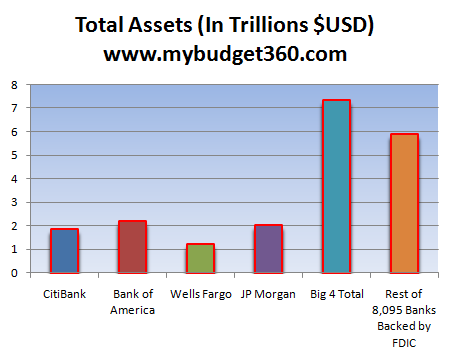Sticking it to small business – Small firms charged an average of $3,224 per month of business expenses on credit cards. Yanking the credit card from small business. $40 billion less to small businesses in Q1 of 2010 compared to 2008.
- 5 Comment
42 million Americans work in firms that have 99 employees or less. We are often told how vital small business is to the health of our nation’s economy. Usually this rhetoric is given to us by banks and Wall Street yet recent data shows a very different attitude. Words ring hollow when it comes to banks lending capital to small businesses. In fact, in Q1 of 2010 lending to small businesses contracted by $40 billion versus lending in 2008. The challenge we face is that back in 2008 when the banking system was being bailed out, one specific reason given to the public was the necessity of keeping the lending lines open to small businesses. This has not happened.
If we want to chart out what has happened it is rather obvious:
Source:Â Federal Reserve
No one is going to dispute that lending to small firms has contracted because of the economic malaise that we are experiencing. But then where did all those trillions of dollars go that helped to bailout the banking industry? The average American, many who work at small businesses (or did), were under the impression that the taxpayer bailout was designed to provide added liquidity to these business so they could continue to function in the economy. Banks were supposed to distribute the funds intelligently. What has occurred instead is the money aggregated in the hands of the banking sector and they are now using the money to patch up massive holes in their own balance sheet. Â
The contraction of lending to small business has caused a double impact:
“As shown in table 3, panel B, in 2003, small firms that used credit cards, on average, charged $3,224 of new business expenses each month. 40 Users of business cards charged an average of $2,983, and users of personal cards on average charged $2,161 a month. Overall, risky firms were somewhat less likely to use cards than less-risky firms in 2003. Risky firms (column 2 of table 3, panel B) charged somewhat less than the less-risky firms (column 3)— $3,163 versus $3,390—in total, and also charged somewhat less on business and on personal cards.â€
Small businesses spend an average of $3,224 each month on business credit cards for business expenses each month. This includes purchasing hard assets that grow the business or adding to additional inventory. Many smaller businesses operate on floating their credit and usually rely on their business lines to stay afloat. The above contraction is intense and has added to the misery of most average Americans. So you have a direct impact on spending and with actually maintaining employees or growing the workforce.
It is easy to see what has occurred with small business:
Since the crisis hit, the usage of credit cards has decreased substantially. Many smaller businesses faced this change by force, not by choice. So banks are impeding the recovery by hoarding capital and focusing on their own bottom line and many are speculating on Wall Street. Yet what are we to expect from the industry that brought us CDOs and every other Wall Street gambling device that has sent a financial torpedo directly to the middle class?
It is true that many people work at smaller firms but many others work at large firms as well:
Source:Â BLS
About 36 percent of paid employees work at firms with 99 employees or less. Sure we can say that 80 percent of firms are small businesses but this skews the actual facts when you have a company like Citibank with 263,000 employees. I’ve heard this stat often quoted and this gives a very unrealistic perspective of what is going on. This is similar to saying that we have 8,000 banks in the U.S. when in reality about 10 too big to fail banks control virtually all of banking:
“The top 4 banks of Bank of America, JP Morgan Chase, Wells Fargo, and Citibank make up 55 percent of all banking assets.â€
If the government wanted to increase lending to small businesses why not do it directly? Sometimes it may be better to use an invoice factoring company for cash flow issues.  It could have been more efficient and cost effective to go directly to the source. But just like in housing, the middleman (i.e,. the banks) need to get their cut all along the way. They generate money by drowning the system in paperwork and charging interest and fees on every imaginable item. Wall Street with their i-banking syndicate are in the business of taking money at every point along the production continuum. The above data should not be shocking to anyone that has followed the crisis with open eyes.
We also raise additional problems going forward because now Wall Street is favoring larger companies and banks going forward. There is now a stamp of approval for any too big to fail business (i.e., autos, banks, etc) and Wall Street will value smaller firms as having added risk even if they manage their operations wisely. Think of the massive consolidation that we saw with JP Morgan eating up WaMu, or Wells Fargo taking on Wachovia, or Bank of America with Countrywide. This all happened as smaller banks fail every Friday.
Small businesses are in the same boat as most working and middle class Americans. The room to wiggle is getting smaller and talk of an economic recovery rings hollow. The only people shocked about lending contracting to small business are those who are too busy counting their bailout billions.
If you enjoyed this post click here to subscribe to a complete feed and stay up to date with today’s challenging market!5 Comments on this post
Trackbacks
-
Big M said:
Somebody once said that people who don’t learn from history are doomed to repeat it, and nobody is better at learning nothing from history than Americans.
This is the same crap that happened during the last great depression. The banksters had no money to loan for peacetime businesses, farms, homes, etc., but no sooner had FDR blindsided Boobus Americanus into WWII than the banksters had untold billions to loan for ammunition, army barracks and K-rations.
Farmers sold their produce, factories went to two shifts, mines reopened, and — VOILA! — the great depression was over.
Lather, rinse and repeat.
July 15th, 2010 at 10:01 am -
Big M said:
P.S.: Anybody see any similarities between the Gulf of Tonkin incident and the WMD charges that have led to the quagmire in Iraq?
And now I’m seeing articles that say the only thing that can save Osama Blackbush’s party in the November elections is a 9/11-style attack that will unite all of the boobs behind him. Watch for FEMA to show up in a neighborhood near you, to be in position to keep everybody away from the evidence of DC complicity, just as they did at the WTC, Waco and OKC.
Lather, rinse and repeat.
July 15th, 2010 at 10:07 am -
j r said:
Banks only lend money to those who don’t need it.
July 15th, 2010 at 12:23 pm -
keepthedooropen said:
Our bank has jacked up our monthly payments cut our credit and the SBA is a freaking joke. No help from any quarter.
July 16th, 2010 at 11:37 am -
mmm said:
and once upon a time banks could only loan if they had reserves and paid some value to get reserves but then they took those reserves and created 10, 20 ,30 or a 100 debt dollars for every one dollar of reserves dollars that had no difference to the reserve dollar and competed equally with the reserve dollar in buying things like houses until they had the money to buy rules enough that said they did not need reserve dollars to print up debt dollars because no one would put reserve dollars into reserve without compensation as the earning power of that dollar fell so very low and meanwhile the bank shareholders were being ripped off by the directors and officers ballots by bogus proxies for multi million dollar salarys and share price value that mostly destroyed companies and allowed divestature of assets to pay these bogus rip offs,,,and then government stepped in to help??????????????????????????????/well meaning enough to bleed the everyone blind ………………..at huge expenses…………
July 16th, 2010 at 12:54 pm




 If you enjoyed this post click here to subscribe to a complete feed and stay up to date with today’s challenging market!
If you enjoyed this post click here to subscribe to a complete feed and stay up to date with today’s challenging market!